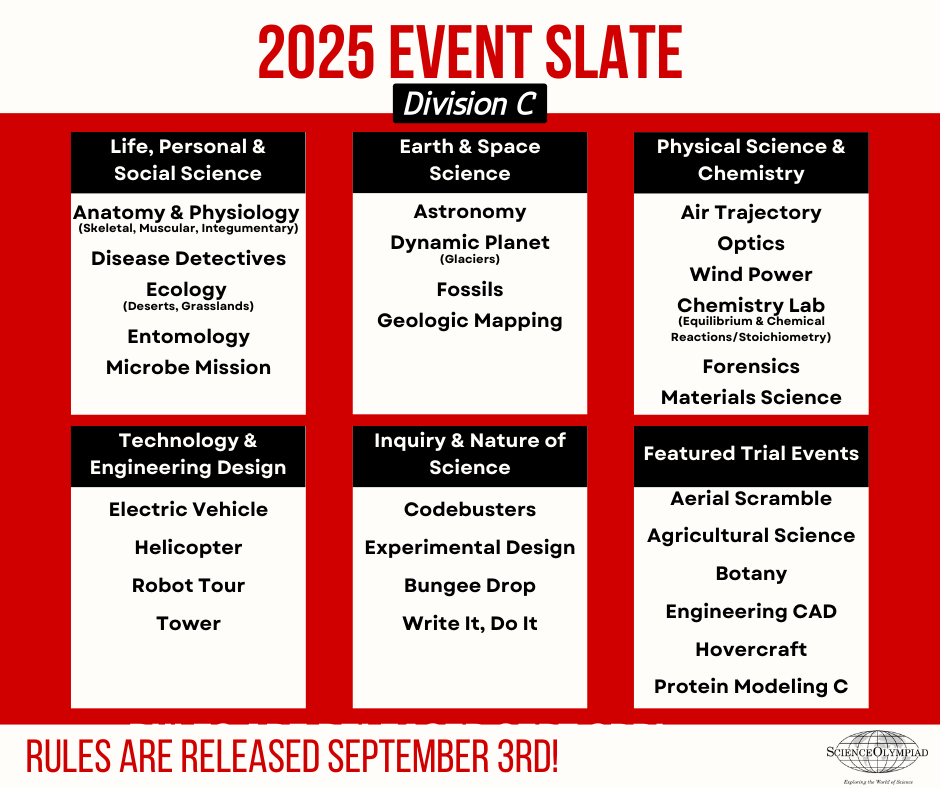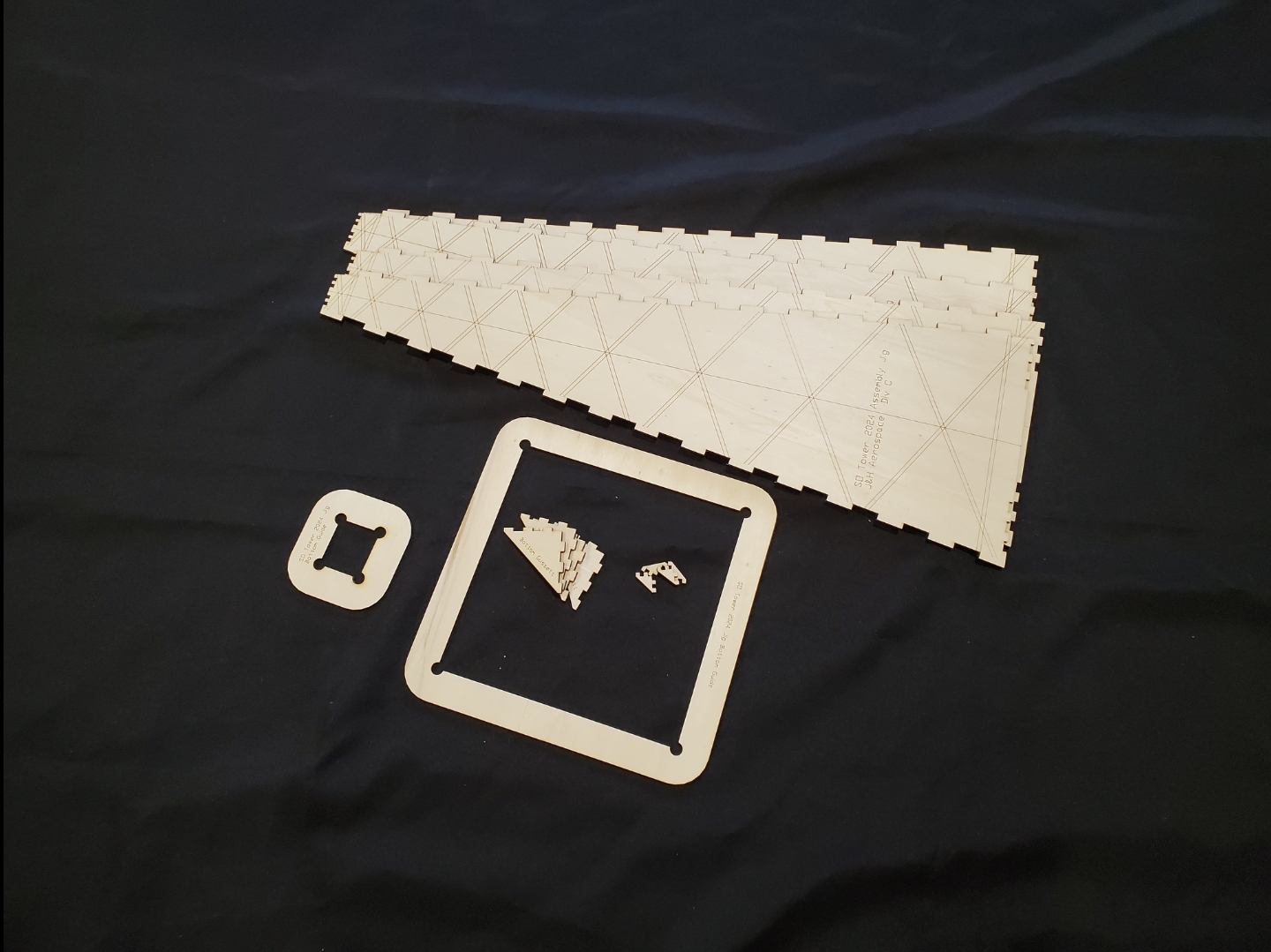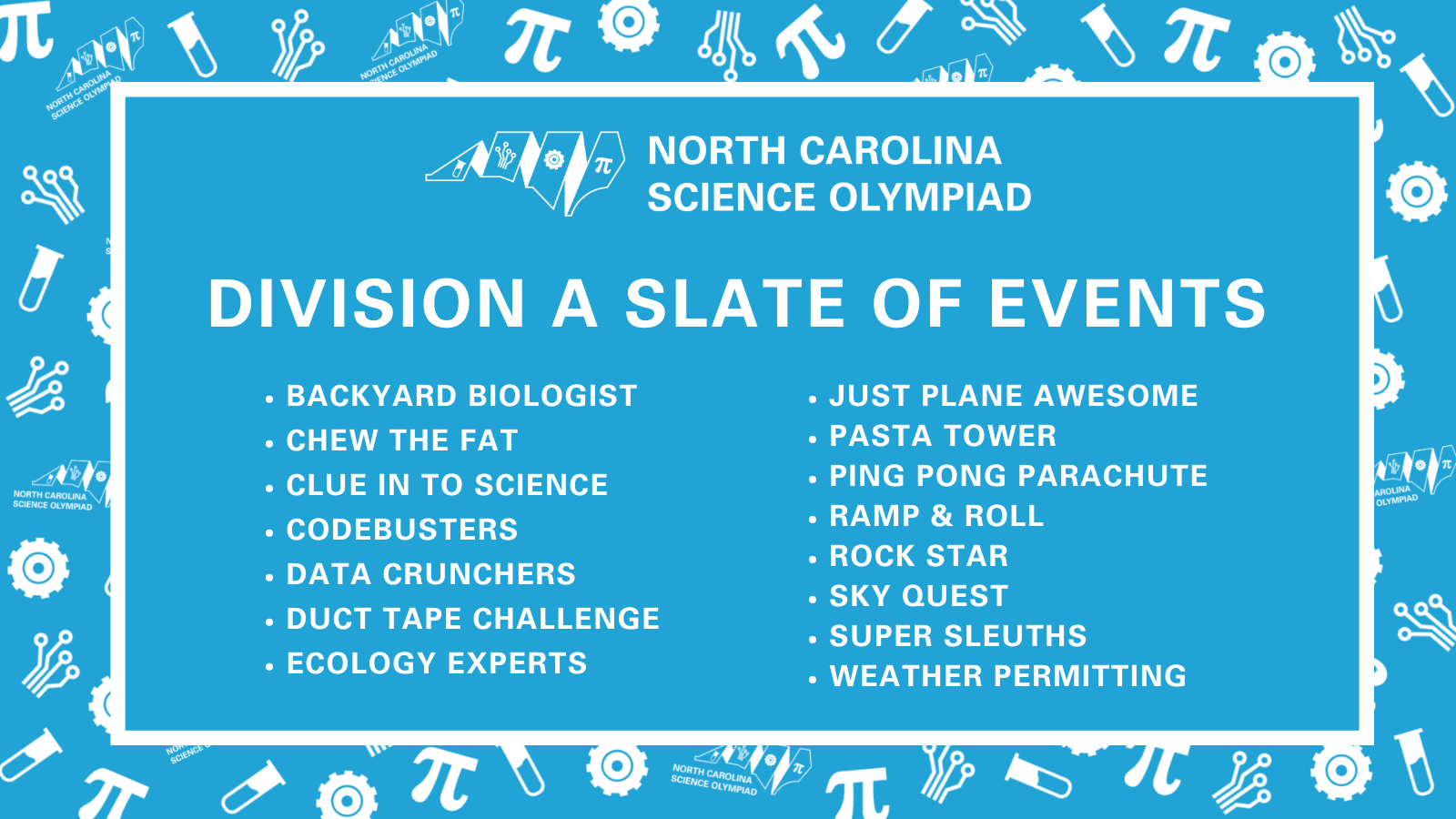Navigating the 2025 Science Olympiad Draft Rules: A Comprehensive Guide
Navigating the 2025 Science Olympiad Draft Rules: A Comprehensive Guide
Introduction
With great pleasure, we will explore the intriguing topic related to Navigating the 2025 Science Olympiad Draft Rules: A Comprehensive Guide. Let’s weave interesting information and offer fresh perspectives to the readers.
Table of Content

Navigating the 2025 Science Olympiad Draft Rules: A Comprehensive Guide
The Science Olympiad, a renowned national competition fostering scientific inquiry and critical thinking, is undergoing a significant evolution with its 2025 draft rules. This comprehensive guide provides a detailed analysis of these proposed changes, exploring their rationale, potential impact, and implications for participants.
Understanding the Rationale Behind the 2025 Draft Rules
The Science Olympiad, since its inception, has strived to remain relevant and engaging, reflecting advancements in science and technology. The 2025 draft rules stem from this commitment, aiming to:
- Enhance the Relevance of the Curriculum: The draft rules introduce new events and modify existing ones to align with contemporary scientific advancements and emerging fields. This ensures the curriculum remains relevant and prepares students for future scientific endeavors.
- Promote Interdisciplinary Learning: The proposed changes encourage a more holistic approach to science education, emphasizing the interconnectedness of various disciplines. Events are designed to encourage students to apply knowledge from multiple scientific fields.
- Foster Innovation and Creativity: The draft rules encourage innovative solutions and creative approaches to problem-solving. This promotes critical thinking and adaptability, essential skills in the 21st century.
- Increase Accessibility and Equity: The draft rules aim to create a more inclusive competition by addressing accessibility concerns and ensuring equal opportunities for all participants.
Key Changes in the 2025 Draft Rules
The 2025 draft rules introduce several significant modifications to the Science Olympiad structure and events. These changes encompass:
1. Event Structure and Categories:
- New Events: The draft rules introduce new events in emerging fields like bioinformatics, cybersecurity, and artificial intelligence, reflecting the growing importance of these disciplines in the 21st century.
- Reimagined Events: Existing events are being revamped to incorporate new technologies, methodologies, and scientific discoveries. This ensures the curriculum remains dynamic and engaging.
- Event Category Adjustments: The draft rules propose changes to the event categories, aiming to create a more balanced and engaging competition. This may involve merging or splitting existing categories to better reflect the evolving nature of science.
2. Assessment and Scoring:
- Emphasis on Process: The draft rules prioritize the process of scientific inquiry and critical thinking over mere memorization. This shift encourages students to demonstrate their understanding of scientific principles and their ability to apply these principles to real-world problems.
- Modified Scoring Systems: The draft rules propose modifications to the scoring systems for individual and team events. This aims to ensure fair and accurate assessment of student performance.
- Integration of Technology: The draft rules encourage the use of technology in event assessments, allowing for more efficient and accurate scoring.
3. Resources and Equipment:
- Updated Equipment Guidelines: The draft rules provide updated guidelines for the use of equipment and resources in events. This ensures a level playing field for all participants and promotes safety during competitions.
- Emphasis on Sustainability: The draft rules encourage the use of sustainable materials and practices in event preparation and execution, promoting environmental awareness and responsibility.
4. Inclusivity and Accessibility:
- Accessibility Guidelines: The draft rules include specific guidelines to ensure accessibility for students with disabilities. This promotes an inclusive environment where all students can participate and excel.
- Diversity and Representation: The draft rules emphasize the importance of diversity and representation in the Science Olympiad, ensuring that the competition reflects the diverse scientific community.
Frequently Asked Questions (FAQs)
1. What are the specific new events being introduced in the 2025 draft rules?
The 2025 draft rules introduce new events in emerging fields like bioinformatics, cybersecurity, and artificial intelligence. These events aim to expose students to the latest scientific advancements and prepare them for future careers in these fields.
2. How are the existing events being reimagined in the 2025 draft rules?
The draft rules introduce new technologies, methodologies, and scientific discoveries into existing events. This ensures the curriculum remains dynamic and relevant to the evolving landscape of science.
3. What are the changes to the event categories in the 2025 draft rules?
The draft rules propose changes to the event categories, aiming to create a more balanced and engaging competition. This may involve merging or splitting existing categories to better reflect the evolving nature of science.
4. What are the modifications to the scoring systems in the 2025 draft rules?
The draft rules propose modifications to the scoring systems for individual and team events to ensure fair and accurate assessment of student performance. This may involve changes in the weighting of different aspects of the event or the introduction of new assessment methods.
5. How do the 2025 draft rules encourage inclusivity and accessibility?
The draft rules include specific guidelines to ensure accessibility for students with disabilities and promote diversity and representation in the Science Olympiad. This aims to create an inclusive environment where all students can participate and excel.
Tips for Navigating the 2025 Draft Rules
- Stay Informed: Regularly consult official Science Olympiad resources for updates and clarifications on the draft rules.
- Engage in Dialogue: Participate in discussions and forums to understand the rationale behind the changes and share your perspectives.
- Adapt and Innovate: Embrace the new challenges presented by the draft rules and explore innovative approaches to event preparation and competition.
- Seek Guidance: Consult experienced coaches, mentors, and educators for guidance and support in navigating the new rules.
Conclusion
The 2025 draft rules represent a significant step forward for the Science Olympiad, aligning the competition with the evolving landscape of science and technology. By embracing these changes, the Science Olympiad will continue to inspire future generations of scientists and innovators.




.png)



Closure
Thus, we hope this article has provided valuable insights into Navigating the 2025 Science Olympiad Draft Rules: A Comprehensive Guide. We thank you for taking the time to read this article. See you in our next article!